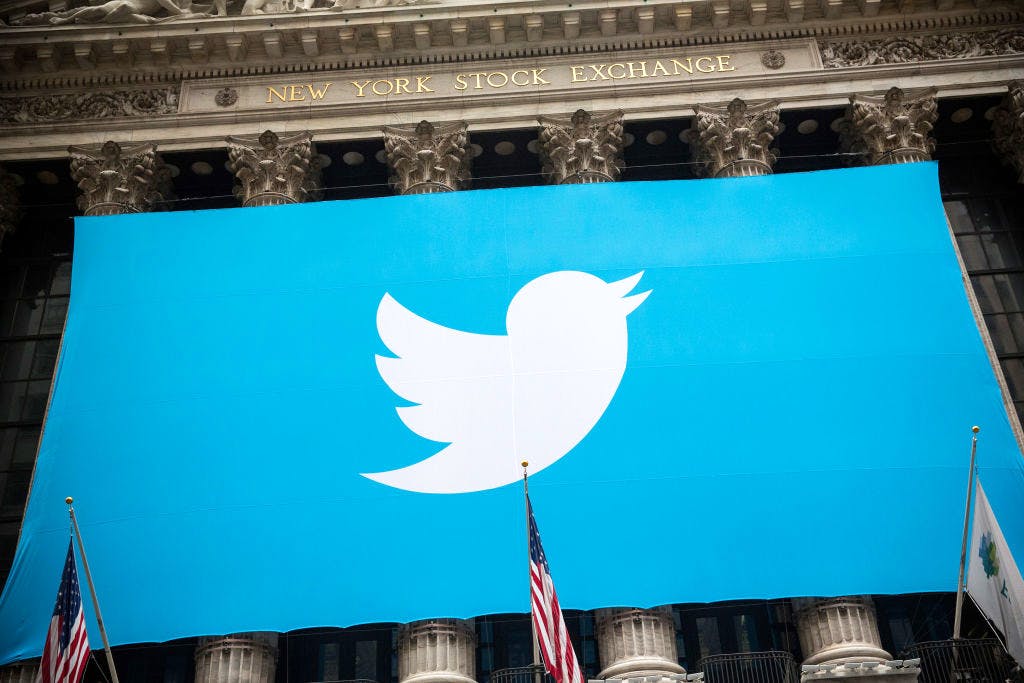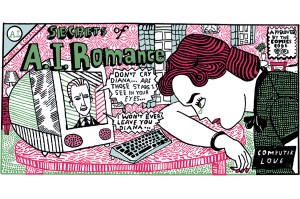Twitter probably isn’t going anywhere. Major platforms don’t just vanish, after all. If we’re not still posting in 2023, then I’ll buy you all a drink — a bet you poor saps won’t be able to hold me to because you won’t be able to find me on Twitter.
Still, if Musk’s “decimate and innovate” plans don’t work then Twitter will decline. It might get slower and buggier and more prone to crashing. Platforms don’t have sudden deaths, but they do have slow and painful ones. Even Myspace still exists. Will Twitter follow it into online obscurity? Not soon, perhaps, but it will in the end. Nothing lasts forever.
So our thoughts turn meditative. Writers sometimes comment on Twitter as if it has trapped them in a toxic relationship. It has given them good times, for sure, but also worry and gloom.
Not me! I love Twitter. Our relationship has been one of tremendous blessings.
Somehow, living in a small town in Poland, I have had the chance to speak to interesting, funny people from around the world. With no real-world connections, and an educational background that could have otherwise opened the door to entry-level jobs in retail, I have memed my way into writing work that I never would have thought was a remote possibility.
To be sure, I understand other points of view. My own has been shaped by a lot of good luck. But it is extraordinary how Twitter has enabled access to those who share our interests, its leveling effects allowing us to read and interact with politicians, scientists, journalists, et cetera, but also with informed and insightful amateurs who would have had no means of getting their ideas out there otherwise. (I’m as glad that I have the chance to speak to people with names like “Spotted Toad” and “Herbalis” as I am that I have spoken to renowned authors and experts.)
Still, some people think we might be better off without it. Of course, we all know Twitter can be used for disinformation and abuse and time-wasting. I don’t need to tell you about that. But a few more novel criticisms are being raised. Janan Ganesh of the Financial Times argues that Twitter is “anti-aspirational” inasmuch as it rewards scorn and cynicism: “All the peer pressure is to be a passive mocker of things.” I see his point! Negativity has more humorous potential than optimism — and involves a lot less risk. I know if I write about something I hate, for example, it will get more attention than writing about something I like.
But there are two points to be made in response. First, there is a lot of bullshit in the world to be cynical about. Frankly, it’s good that Twitter has blessed us with a platform from which to make fun of it. Yes, it can encourage cynicism in excess. But some amount of cynicism is good. Second, it depends on how you use the platform. If all you care about is “likes” and “RTs” then you might not take the risk of being “ratioed” (and if you don’t know what those terms mean you’ve probably given up already). But if you fill your timeline with funny, clever and ambitious people, it inspires you to be funny, clever and ambitious as well — if not out of creative excitement then out of spite.
Aris Roussinos argues that because of Twitter, writing is “oriented to the production of discourse rather than the description of reality.” Aris! Twas ever thus! Pick up a copy of Partisan Review, Dissent or Commentary from decades ago. The discourse was just as incestuous then — it was simply more exclusive. Okay, perhaps I’m making Roussinos’s point for him by writing about an article about Twitter in an article about Twitter — but back then it would have been an essay in a little magazine about an essay in a little magazine about the role of essays in little magazines.
“Twitter is at heart nothing more or less than a tool by which commentators measure their social capital,” Roussinos writes. Well, that’s part of it, for sure. But if commentators were not measuring their social capital by their status on Twitter, it would be by whose parties they had attended and who they had slept with and who had just been on the front cover of The New Spectator. At least Twitter gives other people a look-in. I completely understand Freddie deBoer’s annoyance with “the ugly, vicious, bankrupt popularity hierarchy on Twitter that so many writers are caught up in,” but that would exist anyway, if in a less public and visible form.
All social media is bad in a sense. Actually, I take that back — it is bad in more than one sense. It strongly encourages habitual use. It incentivizes the rapid consumption of content, and in doing so lowers our attention spans and raises our time preferences. It offers information in fragments, which are often partial and misleading, and encourages division and hysteria. It enables nastiness. It is vulnerable to being exploited by bad actors.
But social media isn’t going anywhere. You can read Ted Kaczynski’s manifesto all you like but you aren’t going to wish away the Internet any more than you are going to wish away the morning sun. Among the degrading, dangerous social media apps, Twitter does the most to also encourage valuable content. It is more intellectual than Instagram. It is funnier than Facebook. It is more self-aware than Tumblr. Unlike TikTok, it isn’t filled with kids and owned by the Chinese. Unlike LinkedIn, it isn’t seething with Patrick Bateman-esque psychopaths. Perhaps Twitter is going to muddle through after all because I can’t think of a better alternative. Mastodon is ugly and all but unusable. If more than half the people who have set up accounts are still posting on them in 2023, I’ll buy another round of drinks.
Twitter is also just weird — weird in a carnivalesque way that makes even its pathologies entertaining. Last week I made a joke about critics of Veterans Day that was somehow interpreted as a criticism of Veterans Day. Hundreds of outraged comments rained bile over me as irate boomers stormed out of their social media trenches. It was sad, for a moment, but I had to laugh — not with the laughter of nihilistic derision but with a fondness for fellow sufferers. Twitter is the absurdist app.

























